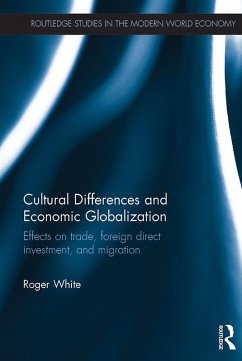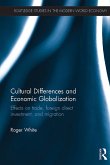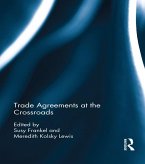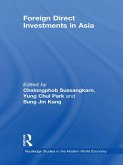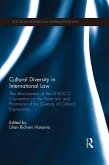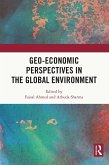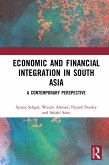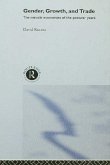Economic globalization is the process of increased integration among nations, characterized and fostered by three elements of international trade- goods and services, international capital flows, and international migration. In recent decades, international economic integration has increased both in depth (more pronounced bilateral connections) and in breadth (connections have become more commonplace), thus, the global economy has become increasingly integrated. Societies receive tremendous net benefits from economic globalization, however, accessing these benefits may be limited by cross-societal cultural differences.
This book examines cultural differences as a potential impediment to economic integration. Relying on rigorous statistical and econometric techniques, the analyses indicate that higher transaction costs, due to greater cultural distance, inhibit both the volume of trade flows and the successful completion of trade deals. Cultural distance appears to reduce foreign direct investment, as well as divert investment to less culturally-distant destinations. This book finds a negative relationship between migration flows and cultural distance. It considers the common criticism that repeated and intensified integration diminishes cultural differences, resulting in cultural homogeneity.
This book offers the first comprehensive examination of the relationships between cross-societal cultural differences and economic globalization. It will be of great interest to scholars and students who study globalization, international economics, and cultural studies.
This book examines cultural differences as a potential impediment to economic integration. Relying on rigorous statistical and econometric techniques, the analyses indicate that higher transaction costs, due to greater cultural distance, inhibit both the volume of trade flows and the successful completion of trade deals. Cultural distance appears to reduce foreign direct investment, as well as divert investment to less culturally-distant destinations. This book finds a negative relationship between migration flows and cultural distance. It considers the common criticism that repeated and intensified integration diminishes cultural differences, resulting in cultural homogeneity.
This book offers the first comprehensive examination of the relationships between cross-societal cultural differences and economic globalization. It will be of great interest to scholars and students who study globalization, international economics, and cultural studies.
Dieser Download kann aus rechtlichen Gründen nur mit Rechnungsadresse in A, B, BG, CY, CZ, D, DK, EW, E, FIN, F, GR, HR, H, IRL, I, LT, L, LR, M, NL, PL, P, R, S, SLO, SK ausgeliefert werden.

